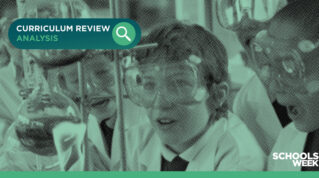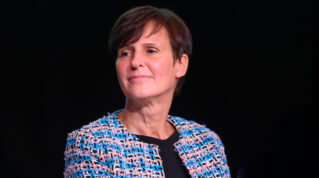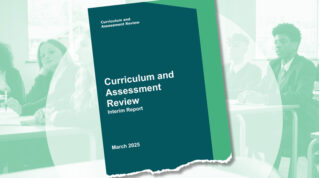Educators and pupils are entreating their schools and exam boards for more diversity and inclusivity with regards to whose stories are being told and through which lens they are being viewed. In a world where books can still be banned, we must instead open our curricula to the wealth of literature beyond the standard, rigid canon.
As a department in a predominantly white, middle-class school in the Cotswolds, we knew we needed to better explore and fully acknowledge the wealth of talent that exists beyond the typical experience of English literature in schools. There can be no place for ‘intellectual’ prescriptivism or elitism in our subject.
Before anyone shouts that we are ‘scrapping Shakespeare’ or ignoring our literary heritage, let’s be clear: What we are doing is complementing the tried-and-tested writers of old. As we have discovered, there is space for them to co-exist with writers and texts from a more diverse range. This isn’t restricted to race. Neurodivergence, disability, gender identity, sexuality and class all need greater representation.
Here are six actions we took that allowed us to make progress and will benefit pupils in any school.
Research and network
We reached out to other schools in our area to see what they were doing. We went into bookshops and onto websites to explore what stories were on offer. And we campaigned to our exam board to do more to diversify the exam specifications. We also researched free programmes and became a pioneer school for a programme that has given us access to an excellent range of free books, CPD events, and even a chance to contribute to their research.
Make diversity visible
We created diversity book clubs for pupils and staff and encouraged all members to bring books in to complement those we set. Promoting these with posters also contributed to increasing our visual representation of Britain’s diverse range of authors around the school. Everyone in our department promotes these in lessons, communicating our unity of purpose.
Start early
Working diversity into the younger years is vital. We’ve worked hard to diversify our key stage 3 curriculum, with units of study in every year group that explore diversity in a range of ways. We work harder still to consider the way we frame and discuss these stories in age-appropriate ways. It won’t do to read only books where those with protected characteristics are victims, for instance, or from one period in time.
Contextualise the canon
Literature provides space for students to understand the facts of our socio-political history and to engage with stories that explore the emotive and ethical struggles of other times and of our own.
Whether or not your exam board’s specs are up to speed with that, wider reading in key stages 4 and 5 can nevertheless enhance students’ learning. For instance, studying ‘Othello’ at A level alongside restoration playwright Aphra Behn’s Oroonoko and Ignatius Sancho’s accounts of slavery makes for powerful (and more accurate) analysis.
Rethink your CPD library
We are also integrating many diversebooks into through our staff diversity policy and training group. This is feeding into our behaviour policy, our curriculum development team’s work and our enrichment programme. These books are on display in all our English classrooms and we actively encourage our staff (and pupils) to browse and borrow.
Beyond the curriculum
Most, if not all schools already acknowledge Britain’s diversity with assemblies, events and fundraising for a whole calendar of celebrations, from Pride month to Black History Month. Most will engage with engage with parents about what is happening, but it’s important to also communicate why. We are open and frank about this at parents’ evenings and other events, and our newsletter always includes ‘recommended reads’ to bring the vibrancy of our curriculum into our pupil’s homes.
Much like an essay answer in an English exam, there is no single, perfect way to diversify your curriculum. There is one sure-fire way to get it wrong though, and that is to not make a start.
















Your thoughts